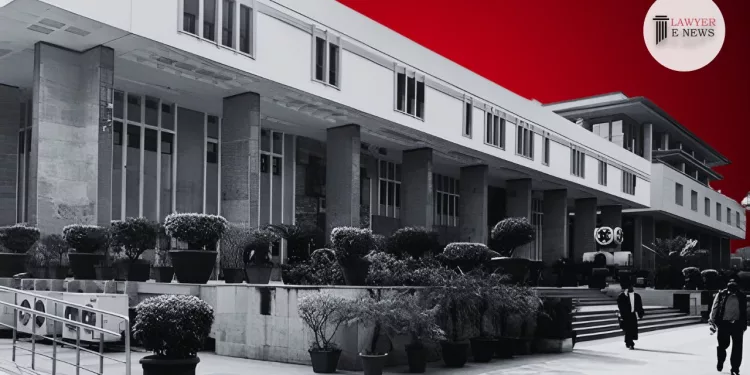Training Period Too Short to Cause Condition: High Court Upholds AFT’s Decision Denying Disability Pension

In a significant judgment, the High Court of Delhi at New Delhi has dismissed a petition challenging the denial of disability pension to a former Sepoy, Naresh Kumar, affirming the Air Force Tribunal’s (AFT) decision. The bench, comprising Hon’ble Mr. Justice V. Kameswar Rao and Hon’ble Mr. Justice Saurabh Banerjee, pronounced the judgment on January 11, 2024, under W.P.(C) 15594/2023 & CM APPL. 62394/2023.
The petitioner, Naresh Kumar, sought a writ of Certiorari to quash the AFT’s orders, which denied him a disability pension for his medical condition, ‘Aortic Regurgitation,’ diagnosed during his military training. Kumar’s condition was deemed not attributable to military service, leading to his discharge in January 1992.
In their detailed judgment, the High Court observed, “The training period was too short to cause such mental and physical strain and/or stress to the petitioner so as to result in his medical condition, for consideration of granting disability pension.” This statement underscores the court’s stance on the non-attribution of the petitioner’s medical condition to military service.
Justice Saurabh Banerjee, in his judgment, highlighted the petitioner’s delayed approach in seeking legal redressal and the lack of valid justification for the delays. The court noted that there was a total unexplained and inordinate delay of over 30 years from the date of discharge of the petitioner from service, which influenced the decision.
The court’s analysis leaned heavily on precedents, referencing significant cases like Union of India v. Baljit Singh (1996), Ministry of Defence v. A.V. Damodaran (2009), and Narsingh Yadav v. Union of India (2019). These cases played a crucial role in reinforcing the principle that medical conditions must be attributable to military service for disability pensions to be granted.
Delhi High Court’s dismissal of the petition reaffirms the legal principle that disability pensions are not a matter of right but depend on the factual matrix of each case. The judgment serves as a precedent for similar cases involving the attribution of medical conditions to military service.
Date of Decision: 11.01.2024
EX RECT NARESH KUMAR VS UNION OF INDIA AND ORS






